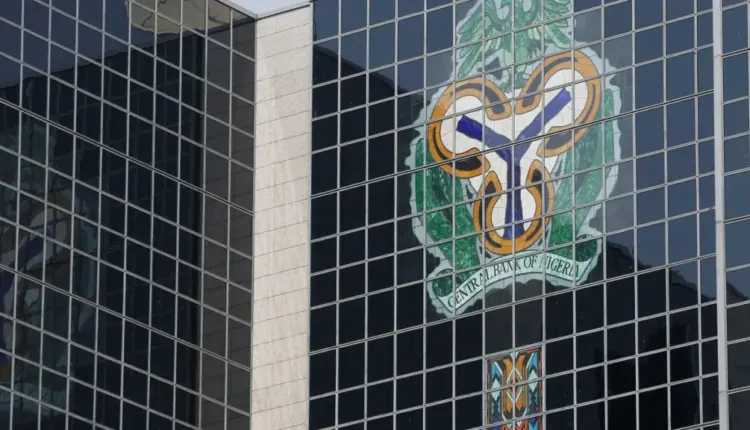In a move that highlights mounting concerns about the UK economy and global inflationary pressures, the Bank of England (BoE) lowered its key interest rate to 4 percent, the lowest level in two years.
Even while the action was widely anticipated, it was not carried out as planned, and the ramifications go well beyond British borders, potentially having a big impact on developing nations like Nigeria.
The rate reduction from 4.25 percent comes as the BoE warns that monetary easing would be gradual and cautious and that inflation, particularly from rising food costs, is still too high. “We’ve cut interest rates today, but it was a finely balanced decision,” said Governor Andrew Bailey in a noticeably circumspect tone. Although interest rates are still declining, any rate reductions in the future must be undertaken gradually and cautiously.
A Record-Setting Vote With Political Undertones
The actual pricing choice was rather controversial. Following an initial impasse, the Monetary Policy Committee (MPC) had to vote twice for the first time since the BoE became independent in 1997. Four members supported a cut, four supported holding rates, and one advocated for an even sharper cut in the first round. In the end, Bailey forced an agreement on the 0.25 percentage point drop by using his casting vote.
Political anxiety around newly appointed Chancellor of the Exchequer Rachel Reeves’s tax proposals, which the BoE believes are fueling inflationary pressure in consumer goods, is part of the vote’s backdrop. Due in major part to rising food prices, the bank projects that inflation might double to 4 percent by September, which is twice its target of 2 percent.
Consequences for Nigeria: Currency pressures, policy space, and capital flows
Nigeria will be affected, particularly as the West African country continues to struggle with inflation, exchange rate instability, and capital flight, even if the BoE’s decision is centered on domestic economic conditions.
Capital and Investment Sentiment Repricing
A sizable portion of foreign portfolio investments in Nigeria’s fixed-income and equities markets come from the UK. A decrease in interest rates in the UK lowers yields on British gilts and other assets denominated in sterling, which could make Nigerian bonds and stocks more appealing in contrast, at least when risk is taken into account.
The yield differential may stimulate some capital inflows, especially from yield-hungry investors in Europe, as the Central Bank of Nigeria (CBN) maintains relatively high rates—currently above 25 percent—in an effort to control inflation and stabilize the currency.
Nigeria’s own economic difficulties, such as a still-fragile currency and ongoing security and infrastructure issues, dampen that allure, though. A lower global interest rate environment, however, may at least lessen external pressure on the nation’s already precarious balance of payments.
The Naira and Exchange Rate Dynamics
The BoE’s dovish move could provide the naira some breathing room after it has experienced many rounds of depreciation in the last year, especially if it leads to a wider round of rate cuts in developed economies. Reduced demand for sterling might result from lower UK rates, which would weaken the currency and possibly lower Nigeria’s import prices for products and services from the UK.
However, considering the sizeable Nigerian diaspora in the UK, any downturn in the UK economy or increased inflation, especially in food and consumer items, could lower demand for Nigerian exports and remittances.
Impact on Households and Diaspora Remittances
One important source of foreign currencies for the UK is the remittances sent home by Nigerians. Nigerian migrants’ disposable incomes may decline, resulting in fewer remittance volumes, if the BoE’s rate cut is insufficient to prevent a recession or if inflation in the UK worsens. Millions of Nigerian households that depend on those inflows for healthcare, education, and consumption will be directly impacted.
Lessons in Policy for the CBN
Another angle is policy signaling. Even in the face of a rate drop, the BoE’s cautious tone reflects the delicate balancing act that the CBN must likewise execute. Despite the fact that Nigeria’s inflationary climate is significantly worse than the UK’s, the London message serves as further evidence that drastic rate reduction may backfire, particularly while prices are growing.
To date, the CBN has implemented strict monetary policy under Governor Olayemi Cardoso in an effort to stabilize the currency and control inflation. Nigeria’s relative position might be strengthened if international central banks keep lowering interest rates while the country keeps its tightening posture. However, this could come at the expense of slower domestic credit growth and higher borrowing costs for firms.
Read Also: Just In: 15 Correctional Officers Sacked, 59 Demoted by FG Over Misconduct
A Declining World Economy and Wariness in the Oil Market
Global growth is slowing, as seen by the BoE’s warning of a slowdown in UK economic activity. Anxious households are conserving more and using less, which may lead to a decline in energy demand.
Any decline in global oil demand brought on by economic slowdowns in developed nations presents a fiscal risk for Nigeria, a country that mostly depends on the export of crude oil for income and foreign money. Although prices have stayed mostly steady in recent months, a decline in forecasts for global growth might push oil prices lower and further reduce Nigeria’s earnings.
Nigeria Needs to Pay Attention
The rate drop by the Bank of England is a part of a larger change in the global monetary landscape and is not just a domestic event. Both opportunities and threats are highlighted by the decision for Nigeria. On the one hand, reduced interest rates elsewhere can enhance relative returns on Nigerian assets and relieve capital pressures. However, there are significant obstacles in the form of declining remittance flows, sluggish demand, and growing global inflation.
Nigeria’s monetary and fiscal policymakers need to continue to be flexible. In addition to addressing internal issues, they must also address the increasingly intricate and interwoven global economy, where decisions made by central banks in London can have an effect on people’s finances in Lagos.

